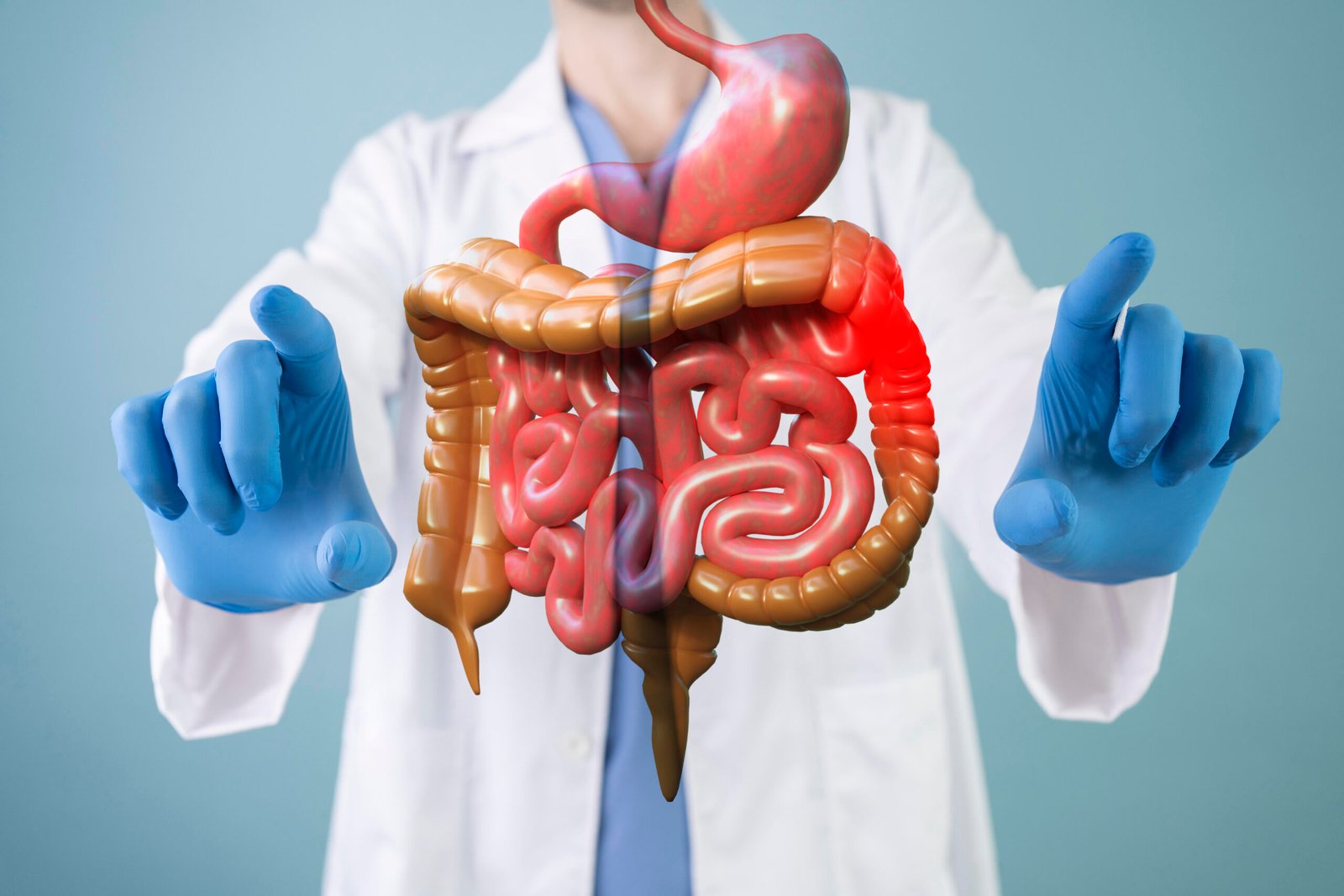Introduction
Crohn’s disease, a chronic and inflammatory condition, represents a formidable challenge within the realm of gastrointestinal disorders. First described by Dr. Burrill B. Crohn, along with colleagues Leon Ginzburg and Gordon D. Oppenheimer, in 1932, this condition manifests as a relentless inflammation of the digestive tract, typically affecting the small intestine and, occasionally, other segments of the gastrointestinal system.
Unlike some digestive disorders with a straightforward etiology, the exact cause of Crohn’s disease remains elusive, with a complex interplay of genetic, environmental, and immune system factors implicated. Individuals with Crohn’s disease, characterized by a relapsing and remitting course, often experience periods of intense inflammation followed by periods of relative calm. The spectrum of symptoms is broad, encompassing abdominal pain, diarrhea, weight loss, fatigue, and nutritional deficiencies.
Moreover, the disease can extend beyond the gastrointestinal tract, impacting various extraintestinal organs and systems. Diagnosis relies on a combination of clinical evaluation, imaging studies, endoscopy, and laboratory tests. While medical management, including immunosuppressive drugs, forms the cornerstone of treatment, the unpredictable nature of Crohn’s disease underscores the need for a multidisciplinary approach, incorporating dietary modifications, lifestyle changes, and sometimes surgical interventions.
What is Crohn’s disease?

In the intricate tapestry of human health, there exists a perplexing condition that often eludes easy comprehension: Crohn’s disease. This enigmatic disorder, nestled within the realm of inflammatory bowel diseases (IBD), is like a mysterious puzzle, challenging both patients and medical professionals to decode its complexities. Let’s embark on a journey to unravel the essence of Crohn’s disease, exploring its origins, symptoms, and the resilience of those who navigate its unpredictable course.
The Genesis of Crohn’s Disease:
Crohn’s disease is a chronic inflammatory condition of the gastrointestinal tract, characterized by inflammation that can extend deep into the layers of affected bowel tissue. Named after Dr. Burrill B. Crohn, who first described the condition in 1932, this ailment defies straightforward classification, affecting any part of the digestive system from mouth to anus.
Symphonic Disarray:
The symptoms of Crohn’s disease form a dissonant symphony of discomfort, varying from person to person. Persistent abdominal pain, diarrhea, weight loss, and fatigue are the recurrent motifs, often accompanied by complications such as fistulas, abscesses, and nutritional deficiencies. The unpredictable nature of these symptoms adds a layer of complexity, turning each individual’s experience with Crohn’s into a unique composition.
The Immunological Conundrum:
While the exact cause of Crohn’s disease remains elusive, the prevailing hypothesis implicates an abnormal immune response. The immune system, typically tasked with defending the body against harmful invaders, goes awry in individuals with Crohn’s, attacking the gastrointestinal tract with misguided fervor. Genetic predisposition, environmental factors, and an imbalance in the gut microbiome further contribute to the intricate dance of immune dysregulation.
Living with Crohn’s disease:
Navigating life with Crohn’s requires resilience and adaptability. The condition is marked by periods of remission and flare-ups, each demanding a nuanced approach to treatment. Medications, lifestyle modifications, and, in severe cases, surgical interventions, become tools in the patient’s arsenal against the capricious nature of Crohn’s. The journey is not without its challenges, yet many individuals with Crohn’s find strength in community support, sharing experiences, and advocating for increased awareness.
A Call for Understanding:
In unraveling the mystery of Crohn’s disease, one must appreciate the courage of those who grapple with its complexities daily. Increased awareness, research, and support are crucial in fostering a society that understands and accommodates the unique needs of individuals with Crohn’s. As we decode the enigma of this condition, may our collective knowledge pave the way for improved treatments, enhanced quality of life, and a future where Crohn’s is not a barrier but a puzzle solved.
Read Also: Ulcerative Colitis: Navigating Symptoms and Treatment Strategies
Managing Crohn’s Disease: Insights and Strategies
The journey to managing Crohn’s disease is multifaceted. This section explores diverse treatment options, from medications to lifestyle changes and dietary modifications. Emphasizing the pivotal role of open communication with healthcare professionals and the support of a network showcases the collaborative effort needed. Additionally, the potential benefits of complementary therapies, such as acupuncture and stress management techniques, are discussed to provide a holistic approach to symptom management.

Medical Management:
Consulting with a gastroenterologist is crucial for a personalized treatment plan. Medications, such as anti-inflammatory drugs and immunosuppressants, can help control inflammation and alleviate symptoms. Additionally, biologics—advanced medications that target specific aspects of the immune system—have shown remarkable efficacy in managing Crohn’s.
Dietary Considerations:
While there is no one-size-fits-all diet for Crohn’s, paying attention to individual triggers is essential. Some find relief with a low-residue diet, limiting high-fiber foods, while others explore dietary modifications like the Specific Carbohydrate Diet (SCD) or the Low FODMAP Diet. Keeping a food diary can aid in identifying and avoiding trigger foods, promoting better symptom management.
Stress Management:
The mind-body connection plays a significant role in managing Crohn’s symptoms. Stress can exacerbate flare-ups, making stress management a vital component of overall well-being. Incorporating relaxation techniques such as meditation, deep breathing exercises, and yoga can help reduce stress levels and promote a sense of calm.
Regular Exercise:
Physical activity has been linked to improved outcomes for individuals with Crohn’s disease. While strenuous exercise may not be suitable during active flare-ups, low-impact activities like walking or swimming can contribute to overall health. It is advisable to consult with a healthcare provider to tailor an exercise plan that aligns with individual capabilities and limitations.
Building a Support System:
Living with a chronic condition like Crohn’s can be emotionally challenging. Building a support system of friends, family, and fellow individuals with Crohn’s can provide both practical assistance and emotional support. Online communities and support groups offer a platform to share experiences, exchange insights, and find encouragement.
Emotional Well-being and Coping Strategies
This section addresses the emotional impact and the challenges of navigating life with a chronic illness. Strategies for maintaining emotional balance, including therapy, support groups, and stress-reducing activities like mindfulness or yoga, are explored. By acknowledging and addressing the emotional aspect, individuals can fortify themselves for the journey ahead.
Navigating Lifestyle and Relationships
Maintaining a sense of normalcy and balance while managing Crohn’s disease is an art. This section provides insights into crafting a lifestyle that aligns with health goals. Strategies for effectively managing relationships, from transparent communication with family and friends to navigating discussions with employers about the challenges posed by Crohn’s disease, are discussed. This holistic approach encompasses the interconnected facets of life, ensuring individuals can thrive despite the hurdles.
Best Pain Relief for Crohn’s Disease

For those grappling with this chronic inflammatory bowel disease, finding effective pain relief becomes a crucial aspect of managing their daily lives. In this article, we explore some of the best pain relief strategies for individuals with Crohn’s disease.
Mind-Body Techniques:
Embracing mind-body techniques can provide a holistic approach to pain management. Practices such as mindfulness meditation, deep breathing exercises, and yoga have shown promise in reducing pain perception and improving overall well-being. By calming the mind, individuals with Crohn’s disease may experience a decrease in stress-related symptoms, contributing to a more manageable pain level.
Dietary Modifications:
The saying “you are what you eat” holds particular significance for individuals with Crohn’s disease. Certain foods can trigger inflammation and exacerbate symptoms. Adopting a low-residue or low-FODMAP diet may help alleviate pain by reducing the workload on the digestive system. Consulting with a registered dietitian to create a personalized nutrition plan tailored to individual needs can be instrumental in managing pain through dietary modifications.
Medical Cannabis:
In some regions where it is legally available, medical cannabis has gained attention for its potential to manage chronic pain, including that associated with Crohn’s disease. Cannabinoids, the active compounds in cannabis, interact with the body’s endocannabinoid system, modulating pain signals and inflammation. However, it’s essential to approach this option under the guidance of a healthcare professional, considering the legal status and potential side effects.
Prescription Medications:
Traditional pain relief medications, such as nonsteroidal anti-inflammatory drugs (NSAIDs) or acetaminophen, are often used to manage pain. However, given the nature of Crohn’s disease, these medications may not be suitable for everyone and can even exacerbate symptoms. Consultation with a gastroenterologist is crucial to determining the most appropriate prescription medications for pain relief tailored to the individual’s specific situation.
Biofeedback Therapy:
Biofeedback is a technique that teaches individuals how to control physiological functions, such as heart rate and muscle tension. This method can be particularly useful for managing pain related to Crohn’s disease by providing individuals with real-time information about their body’s responses, empowering them to make conscious adjustments and reduce discomfort.
Effectively managing pain in Crohn’s disease requires a multifaceted approach that addresses both physical and psychological aspects.
Crohn’s Disease: Conclusion
Crohn’s disease is a complex adversary, but armed with strategies, individuals can embark on a fulfilling journey. This exploration highlights the importance of a holistic approach, encompassing medical, emotional, and lifestyle aspects. By adopting a proactive stance and building a robust support network, individuals can transcend the limitations imposed by Crohn’s disease.
Remember, you are not alone on this journey. Seek professional guidance, connect with support communities, and share your experiences. Through collective knowledge, we can transform the narrative of Crohn’s disease from a formidable foe to a challenge that can be overcome.
Your journey is unique, and your story matters. Share your insights, seek support, and let us forge a path towards a fulfilling life despite Crohn’s disease.
